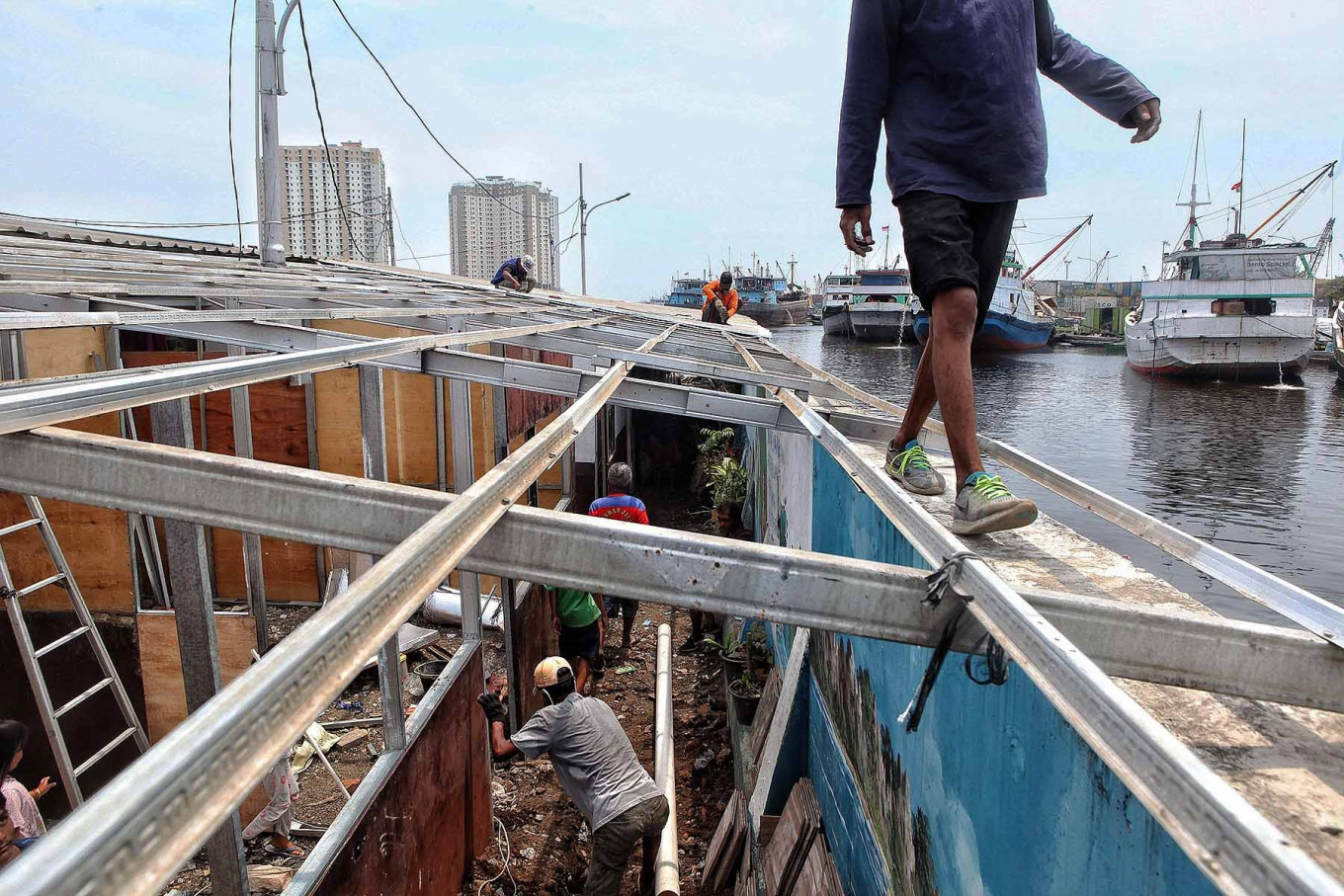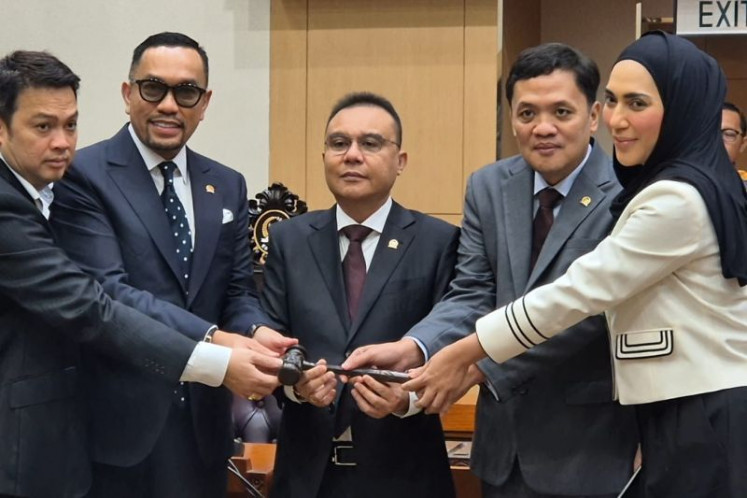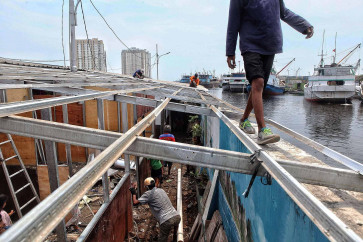Popular Reads
Top Results
Can't find what you're looking for?
View all search resultsPopular Reads
Top Results
Can't find what you're looking for?
View all search resultsGovt open to a more integrated, community-minded approach in solving slums
Change text size
Gift Premium Articles
to Anyone
T
he government state ministries will consider implementing a more integrated and community-minded approach in reorganizing slums across the country, using the several successful community-run projects as a model.
Representatives of several ministries said at a public seminar organized by the Collective Housing Coalition on Tuesday that they were supportive and open to such suggestions.
Tri Dewi Virgiyanti, director of housing and residential area of the ministerial level National Development and Planning Agency’s (Bappenas), said that her ministry would lead the effort.
“When it involves several ministries, we’ll handle the coordination. We’ll consolidate the data and do a case study first, because there are multiple approaches we have to consider.”
At the seminar, representatives from the Home Ministry, the Public Works and Housing Ministry and the Agrarian and Spatial Planning Ministry said they were also supportive of the coalition’s proposal, which aims to foster collaboration between the government and the community in reorganizing slums.
The coalition, consisting of the Rujak Center for Urban Studies, the community architects’ group Arkom Indonesia and the Urban Poor Consortium (UPC), have for several years advocated for a community-run collective-housing approach in organizing slums.
The government has tended to rely on forced-relocation projects, often to low-cost apartments located at a distance from the residents’ original neighborhood.



















